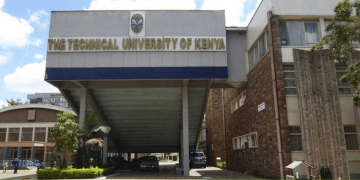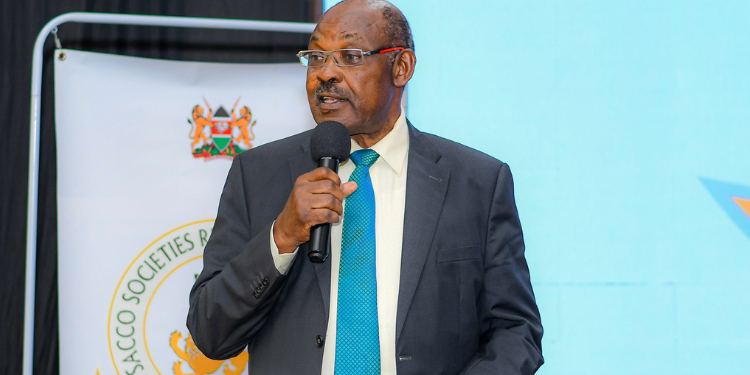A new report has revealed that most Kenyans believe that the country is headed in the wrong direction despite notable non-economic achievements. Infotrak Research and Consulting Limited, in a survey conducted between August 13 and 14, 2025, found a stark “economic disconnect” in the national outlook, with critical failures of non-economic achievements, such as peace and government performance, to offset pervasive economic distress.
While a minority of Kenyans cite positive factors, the overall national mood is dominated by household economic pain, and these successes are strategically ineffective in garnering public confidence.
The poll data demonstrate that the public’s perception of the country’s trajectory is almost entirely tied to the cost of living and the lack of jobs, overshadowing political stability or perceived governmental successes.
According to the Infotrak survey, 57% of Kenyans believe the country is headed in the wrong direction, while only 17% feel it is on the right path. Additionally, 21% of respondents stated that the country is headed in neither the right nor the wrong direction.
Why most Kenyans believe the country is headed in the wrong direction- Infotrak report
Among those who believe the country is on the wrong track, the reasons cited are overwhelmingly economic. The high cost of living was mentioned by 66% of respondents, making it the most significant concern. Unemployment followed as the second most pressing issue, cited by 30% of respondents. Furthermore, a combined 30% attributed their negative outlook to issues related to poor governance and the perceived failure of SHIF/SHA (Social Health Insurance Fund/Social Health Authority).
The Central region stands out as the most pessimistic in the country, with 71% of respondents from the area stating that they believe Kenya is headed in the wrong direction. This figure is significantly higher than the national average of 57% and exceeds those of other high-pessimism regions, such as Western (62%) and Eastern (61%).
Also Read: Nairobi’s Most Expensive Estates in 2025 and Why
In contrast, only 10% of respondents in the Central region believe the country is on the right path, marking the lowest level of optimism recorded among all regions surveyed.
The primary factor driving this negative sentiment in Central Kenya is the high cost of living, cited by 67% of respondents as the main reason for their outlook.
The core insight from the data is that “the national dialogue is not about politics, but about household survival and the perceived failure of social safety nets,” particularly in the areas of healthcare and job creation.
Peace and government performance failing to reassure public
The poll highlights what Infotrak terms an “economic disconnect,” where the government’s success in maintaining peace and political stability fails to register as meaningful progress in the eyes of a population weighed down by severe daily economic hardship.
Among the 17% of Kenyans who hold an optimistic view that the country is on the right track, the reasons cited are primarily non-economic in nature. Specifically, 41% of these respondents cited the presence of peace in the country as the main reason for their optimism. Additionally, 37% believe that the government is performing well, while 28% pointed to economic stabilization as a sign of progress.
Despite these positive sentiments, the poll suggests that these factors are strategically overshadowed by economic distress. The current level of pessimism suggests that the long-term benefits of the administration’s policies have not yet been fully translated into broad public confidence.
Also Read: Report Reveals Why Kenya’s Landlords Sell Their Houses and Still Win
As such, policy efforts must urgently address core livelihood issues—especially price stabilization and job creation—to reverse the prevailing negative sentiment.
Economic pain widespread
The depth of the current economic crisis is reflected in near-universal experiences of worsening conditions. A combined 70% of Kenyans now rate the current cost of living as either “high” or “very high,” with 46% specifically rating it as “very high.”
Further amplifying the economic strain, 79% of the public report that the cost of living is “much higher” (63%) or “somewhat higher” (16%) than it was just one year ago.
The burden is especially acute among fixed-income groups, with 56% of Kenyans aged 55 and above rating the cost of living as “very high”—the highest rate across all age groups.
In a significant finding, the poll also reveals that Kenyans largely attribute their economic hardships to domestic fiscal policy, rather than external global factors.
When asked about the main perceived causes of the high cost of living, the majority of respondents pointed to domestic factors. Taxes were identified as the single biggest cause by 40% of those surveyed. In total, a combined 70% attributed the rising cost of living to taxes (40%), government policies (16%), and corruption (14%).
In contrast, only 19% of respondents believed that global economic factors—such as international fuel prices or global supply chain disruptions—were primarily responsible for the rise in the cost of living.
Infotrak used Computer Assisted Telephone Interviews (CATI) with a sample of 2,400 adult Kenyans across all 47 counties.
The survey achieved a 96% response rate and utilized a Population Proportionate to Size (PPS) sampling frame based on the 2019 Census, ensuring a national representativeness with a margin of error of ±2% at a 95% degree of confidence.
Follow our WhatsApp Channel and X Account for real-time news updates.
























































![Senator Allan Chesang And Chanelle Kittony Wed In A Colourful Ceremony [Photos] Trans Nzoia Senator Allan Chesang With Channelle Kittony/Oscar Sudi]( https://thekenyatimescdn-ese7d3e7ghdnbfa9.z01.azurefd.net/prodimages/uploads/2025/11/Trans-Nzoia-Senator-Allan-Chesang-with-Channelle-KittonyOscar-Sudi-360x180.png)




















